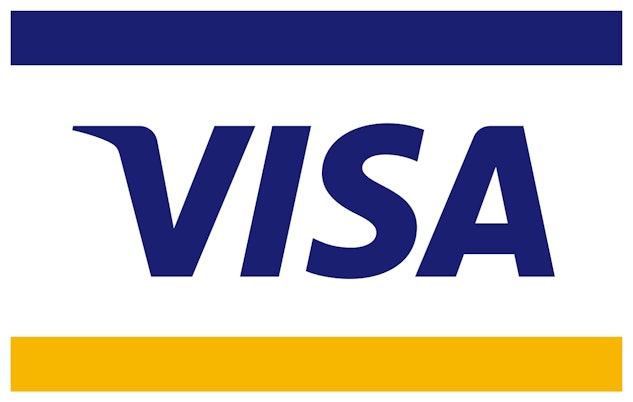Td Visa Gambling Restrictions
. Legal gambling transactions, including sports wagering, are permitted under the Visa rules and Visa transactions will be accepted as valid provided the transactions are categorized under the appropriate gambling merchant category codes (MCCs). But the First Class Visa Signature card comes with an $89 annual fee, whereas the TD Cash Visa has no annual fee, and cardholders can access Signature benefits as long as their credit limit is at least $5,000. TD Cash Visa is a well-rounded cash rewards credit card.
4.19.1 Visa SavingsEdge Requirements – US Region 294 4.20 Visa Purchasing 295 4.20.1 Visa Purchasing – Issuer Requirements 295 4.21 Visa Fleet 296 4.21.1 Visa Fleet Card – Issuer Requirements 296 4.22 Visa Large Purchase Advantage – US Region 297 4.22.1 Visa Large Purchase Advantage Requirements – US Region 297 4.23 Visa Meetings Card. What are the eligibility requirements for a TD Credit Card? TD Credit Card eligibility requirements Eligibility requirements vary according to each TD Credit Card. To help choose the right Card for you, please use our Credit Card Selector tool. You’ll be able to read each Card’s requirements before you begin the application process.
Spouses and unmarried children under the age of 21 may accompany or follow valid TN (Trade NAFTA visa category) status holders to the United States under TD (Trade Dependent visa category) status. A dependent’s TD status will initially be valid for the amount of time the principal TN worker maintains status. Extensions of TD status are also possible, in conjunction with the principal TN worker’s extension of status. Entrance with either a TD status or a TD visas will allow the alien multiple entrances to the United States as long as the TD status remains valid.
TD status does not allow an alien to work in the United States. Aliens with TD status are allowed to study full-time, but are not allowed to legally work in the United States. If an alien under TD status wishes to work they should seek to change to another non-immigrant status which allows employment in the U.S.
Evidence Required to Prove Principal TN’s Valid Status and a Family Relationship
Whether applying for a TD non-immigrant visa at a U.S. Embassy, gaining TD status at a port of entry, or changing status to TD in the United States, a TN dependent will need to provide evidence of their spouse’s/parent’s valid TN status and proof of familial relationship.
Examples of evidence used to establish the spouse’s/father’s valid TN status are: copies of the TN status holder’s passport showing a valid I-94; recent employment letter from principal TN’s employer; and a TN’s recent pay stubs. A copy of the TN’s I-94 is the most common form of documentation requested to prove a spouse’s/parent’s valid status. Types of evidence used to establish the marital or parent-child relationship is a marriage certificate (for spouses) and a birth certificate (for children).
In situations where an alien seeking TD status is accompanying a worker seeking admission to the United States as a TN non-immigrant (where the TN and TD will enter the US together for the first time in these statuses) the submittal of evidence for the TN’s status will be conferred to the alien seeking TD status. So, TN and TD do not have to both submit the same evidence in duplicate if they are initially entering the United States together: proof of employment and ability to receive TN status will also be proof of the dependent’s ability to receive TD status.
There are three categories of TD status holders which will have different procedures for entering the United States:
Canadian spouses and children of Canadian TN status holders
Non-Canadian spouses and children of Canadian TN status holders
Mexican or non-Mexican spouses and children of Mexican TN status holders

Canadian Dependents of TN Status Holders
Canadian citizens do not generally require a visa to enter the United States. This means, that even if entering the United States to obtain TD status, a Canadian citizen spouse or child will not need a TD non-immigrant visa to enter the United States. [For a discussion of the difference between a visa and a status, please click here.] Like the Canadian TN status holder, a Canadian seeking TD status does not need an entry visa in order to enter the United States. So, since Canadians do not generally require visas to enter the US, a Canadian dependent accompanying a TN or following to join will not need a visa to apply for admittance to the United States as a TD. If TD status is approved, the alien will be issued an I-94 with a specific validity period.
Whether accompanying a principal TN holder or following to join, Canadian citizens will still require proof that they are a Canadian citizen (a valid passport is evidence of this) and that they are the spouse/child of a TN holder currently maintaining valid TN status.
Dependents who are not Canadian Citizens
Non-Canadian spouses and children of Canadian citizens require a visa to enter the United States for the purposes of TN dependency. TN dependents who are not Canadian citizens will need to acquire a TD visa stamp from a U.S. embassy BEFORE arriving at a U.S. port of entry and seeking admittance.
Unlike Canadian citizens seeking TD status, non-Canadians will need to file and pay the processing fees for form DS-160 (Department of State’s “Online Nonimmigrant Visa Application”). Next, the non-Canadian alien will need to schedule an interview with the nearest U.S. embassy. At the interview the alien will need to arrive with his/her passport and provide evidence of their spouse’s/parent’s valid TN status (copy of TN’s I-94) and proof of familial relation (marriage or birth certificate). Once approved, the alien will receive a TD visa stamp: after the interview the alien’s passport will be mailed to them with the TD visa stamp. Now an alien will be able to seek admittance to the U.S. with his/her TD visa stamp. The visa only allows the alien to travel to a U.S. port of entry, and does not guarantee entrance. A non-Canadian dependent will still need to supply evidence of principal TN’s valid status and his/her relationship to the TN at the port of entry to legally be allowed into the U.S. in TD status.
Example:
Mei, a Chinese citizen, is married to Ethan, a Canadian citizen working in the U.S. with TN status. Mei wants to go to the United States under TD status to live with Ethan. Since she is not a citizen of Canada she will require a nonimmigrant visa to travel to the United States. She files a DS-160 and pays the fee of $160. After scheduling an interview using the information from her printed out DS-160 Mei goes to the U.S. embassy where she made her interview appointment bring with her evidence supporting her TD application (husband’s TN based I-94 and a copy of their marriage certificate). Mei receives a TD visa stamp in her passport which allows her to travel to a United States port of entry. Mei later arrives at a US port of entry and provides her TD visa stamp and that same evidence provided to the U.S. embassy to the Customs and Border Protection officer. Once she is admitted to the United States Mei will receive an I-94 based on her TD status with a validity period that is equal to the amount of time her husband has remaining on his TN I-94.
The scenarios discussed above have been based on the presumption that a husband already has a valid TN status and corresponding I-94. It is possible, however, for a Canadian citizen to enter the U.S. on a TN visa at the same time as his/her spouse and/or children enter with TD visas. Even though it is not required of a Canadian citizen to have a visa to enter the United States, a Canadian seeking TN status can apply for a visa at a U.S. embassy. In this way, a Canadian and his/her non-Canadian dependent can enter the U.S. at the same time if they apply at a U.S. Embassy together.
Example:
Wei is a Chinese citizen married to Emma, who is a citizen of Canada. Emma wants to work in the United States with TN status. Emma does not require a visa to enter the United States and can easily and quickly be admitted to the U.S. However, Emma does not want to be separated from Wei for very long. The most common way for Wei to gain TD status would be to use Emma’s TN based I-94 after she had been admitted to the United States (this means around two months of separation with Emma in the United States and Wei awaiting his visa stamp from a U.S. embassy). Although it is not required of her to travel to the United States, Emma decides to go with Wei to the embassy to apply together for TN and TD visas respectively. If Emma gets her nonimmigrant visa approved this will be proof of her TN visa for validating Wei’s TD visa. If they couple does this they will not have to be separated and can enter the United States together. (In this scenario the couple will still need to provide evidence that they are eligible for their respective visas when seeking admittance at a port of entry).
Mexican citizens and non-Mexican citizens seeking TD status
Mexican citizens do require a visa to travel to the United States. This means that the ability to seek TN or TD status at a port of entry without first acquiring a visa stamp does not apply to Mexican citizens. Whether the alien is seeking principal TN status or dependent TD status he/she will need to apply for a visa through a U.S. embassy. The same is true for non-Mexican citizen dependents (excluding Canadian citizens) of Mexican TN status holders.
Alien’s accompanying or following to join a Mexican TN status holder will have to go through the same U.S. embassy process as that listed above for non-Canadian citizens. All Mexican citizen and all non-Mexican citizen dependents (who are not Canadian citizens) will have to apply for a visa at a U.S. embassy before seeking admittance into the United States. In summary, these types of dependents seeking TD status will have to:

File DS-160
Pay the $160 application fee
Schedule a US Embassy interview
Attend the scheduled interview with passport and supporting documents (TN’s I-94 and marriage and or birth certificate)
Receive the TD visa stamp in the mail
Travel to US port of entry with above mentioned supporting documents and passport with TD visa stamp
Once admitted, enter the United States with TD status and appropriate I-94
A Final Note about Entering the United States
Whether required to have a visa or not, TD dependents do not have to arrive to the United States from the same country as the principal TN holder’s citizenship. Likewise, if a visa is required (for non-Canadian and Mexican citizens), an alien seeking TD status does NOT have to apply for the visa at a U.S. embassy in Canada or Mexico, even though this is where the principal TN holder has citizenship. Applications for a visa stamp can be conducted at U.S. embassies outside of the NAFTA region.
There is no admittance fee for TD status seekers, regardless of their country of citizenship. This means that Canadian citizen TD seekers who can seek admittance without a visa will have no fees to pay for obtaining TD status. For Mexican citizens and other non-Canadian citizens, this means that the application fee for the DS-160 ($160) is the only official fee to be paid in pursuing TD status: there will not be an additional admittance fee upon seeking entrance to the U.S.
(Updated 10/10/2012 by AG)

For more information on the TN category, please click one of the following links:
Introduction
VisaPro’s experienced immigration attorneys will prepare and file all the required documents for Spouses and Children of TN visa holders applying for the TD visa.
TD Visa Eligibility – It Is Suitable For:
Td Visa Gambling Restrictions Us
- Spouse and children of TN visa holders who wish to visit the principal visa holder in the U.S.
- Spouse and children of TN visa holders who wish to accompany the principal visa holder
TD Visa Notes
- The information provided here is applicable to New TD Visa and TD Extension.
- To change the purpose of your visit while you are in the U.S. on a TD visa, you must change your visa status.
TD Visa Fees
VisaPro Processing Time 1 business day

What VisaPro Customers Are Saying
Td Visa Gambling Restrictions Rules

I would have no hesitation recommending Visapro. They dealt with my [K-1 Visa] case professionally and I appreciated the way they made themselves available over the phone when I needed clarification or to ask a question………. I am very happy I chose them to manage my visa application and grateful for their support right through to successfully acquiring my Green Card.”
Michelle, Chicago